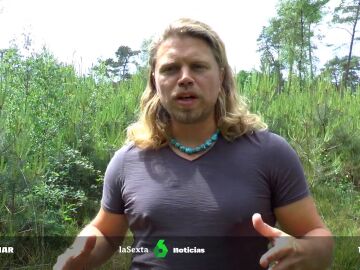
A Dutch court today ordered Jonathan M.., a sperm donor who admits to having at least 550 biological childrento stop providing his semen parents-to-be to protect children from “negative psychosocial consequences” that he has to have “hundreds of half-siblings that they did not choose”. The Court of the Dutch city of The Hague ruled this Friday on this controversial case, reported by a mother who gave birth to a child with the sperm of Jonathan M. and by the Donorkind Foundation, which initiated summary proceedings to stop this donor, alleging that ““unnecessarily puts” your children at risk.
“In essence, this case is about fundamental rights in conflict. On the one hand, the right to privacy of parents and children of donors, protected by article 8 of the European Convention on Human Rights, and, on the other hand, the same right of the donor. The court is of the opinion that the interests of donor-born children and their parents outweigh the donor’s interest in continuing to donate sperm to new prospective parents,” the Court determined.
The complainants argued that Jonathan M. refuses to stop this practice, despite the fact that the rules that prevent you from having more than 25 children by donation, which violates various rights, including privacy, of parents and children. It was easy for him to circumvent the rules because the Dutch clinics they do not share data with each other and there is no information about agreements that are reach privately between interested parties and men who offer their sperm through online platforms and social networks, something that Jonathan M. also did, who also donated sperm in other countries.
At the April 13 hearing, they asserted that the actions of Jonathan M., of 41 yearsare dangerous, “given the scientifically proven risk of inbreeding, incest and negative psychosocial consequences for children born by donation”, and hinders sexual freedom of the “children” because they must check if a possible partner is not a stepbrother of theirs. For his part, Jonathan M. invoked his “right to freely decide whether to continue donating sperm” and defended that he was not “acting out of his own interest, but rather that of the future parents, whom he wants to help”, thus denying that this “harms” those children and the parents themselves.
Donor: risk of incest is “very small”
The donor assured that the risk of incest is “very small” because his children can know who their father is by not being an anonymous donor, and he regretted having become “the face of those who donate sperm on a large scale” in the Netherlands. “They present me as if I were some kind of rabid bull with a procreative drive. I’m not. I don’t believe in evolution, but in creation,” he defended himself at the hearing.
However, in the ruling, the investigating judge today found that Jonathan M. “deliberately misinformed parents” about the number of children he had already fathered and intended to father as a donor because “he knew that this information was decisive in his decision whether or not to accept him” as a candidate to provide them with his semen. “This while he knew they would not to know how many children he had fathered as a donor and that he did not respect the limit. All of these parents are now faced with the fact that the children in their family are part of a huge kinship network, with hundreds of half-siblings, who they did not choose,” the judge added.
Thus, it considered “sufficiently plausible that this has or may have negative psychosocial consequences for children”, so it is important that this kinship network “does not spread further”. “The latter is also of interest to the children of the donor. negative psychosocial consequences for children can include: having a difficult relationship with so many biological half-siblings, having to deal with identity problems and (the fear of) a greater risk of incest/consanguinity”, concluded the magistrate, who defined as “limited” the violation of the right to respect for privacy” of the donor.
In addition to this case, at least ten gynecologists who used his semen without knowledge of women who wanted to get pregnant at their fertility clinics. One of them is Jan Karbaat, with 81 confirmed children. Or gynecologist Jan Wildschut, who fathered at least 47 children. The latest case came to light last November. A Dutch man, who recently died of esophageal cancer, donated his sperm to women he contacted online and would have fathered at least 80 children in the Netherlands
Source: Lasexta
Ricardo is a renowned author and journalist, known for his exceptional writing on top-news stories. He currently works as a writer at the 247 News Agency, where he is known for his ability to deliver breaking news and insightful analysis on the most pressing issues of the day.












